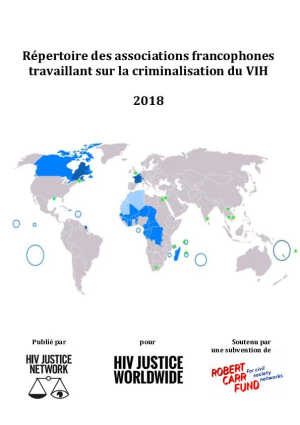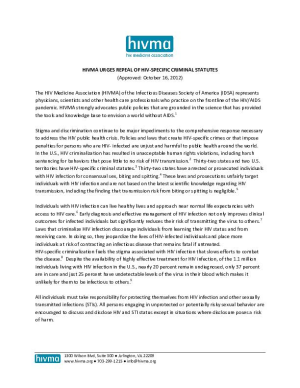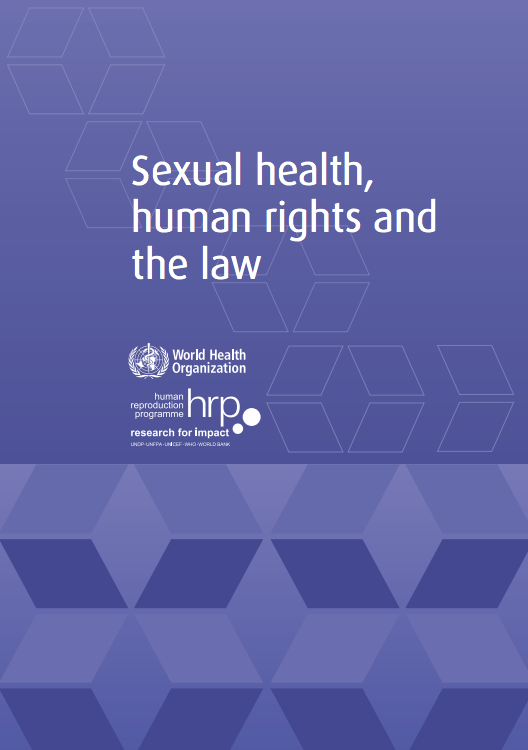Répertoire des associations francophones travaillant sur la criminalisation du VIH – 2018
Répertoire des associations francophones qui travaillent déjà dans le domaine de la criminalisation du VIH ou qui seraient intéressées à developper leur engagement dans ce domaine.
HIVMA Urges Repeal of HIV-Specific Criminal Statutes
Highlights the detrimental effects of HIV-specific criminalization and supprts modernization of laws and practices to reflect current science and knowledge about HIV, the promotion of education addressing stigma associated with HIV-specific criminalization, and a federal review of federal and state laws, policies and regulations.
Sexual health, human rights and the law
Considers States’ obligations to bring laws and regulations affecting sexual health into alignment with human rights laws and standards. Includes recommendations on HIV criminalisation.



